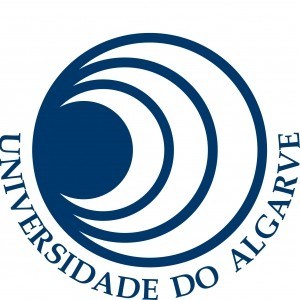Photos of university / #ualg_universidadedoalgarve
Advertisement
Chemicals play an important role in everyday life. However, the use of chemicals involves a risk: some are highly toxic to humans and to the environment, or they may cause physical and chemical hazards. The toxicity of many chemicals is still unknown. International regulations such as the European regulations REACH - Registration, Evaluation, Authorisation and Restriction of Chemical substances aim to improve the protection of human health and the environment through the better and earlier identification of the intrinsic properties of chemical substances. There is still insufficient information on the hazards that many commonly used chemicals pose to human health and the environment. There is a need to fill these information gaps to ensure that industry is able to assess hazards and risks of the substances, and to identify and implement the risk management measures to protect humans and the environment.
ChIR provides professionals with all the tools and knowledge needed from the scientific, the regulatory and the economic point of view to manage the risks of chemicals responsibly and to meet responsibilities over chemical legislation worldwide.
The master is offered by a Consortium of four European Universities:
University of Algarve (Portugal)
University of Barcelona (Spain)
University of Bologna (Italy)
Heriot Watt University (UK)
The programme duration is 2 years consisting of a 1 year taught course and 1 year of research project and thesis. The main language of instruction is English. Each university also offers local language training during the course.
The taught course is made of stand-alone modules. Students are allowed to build their own study plan according their own interests. By the end of the course students will:
- have a thorough understanding of international regulations on the use of chemical substances;
- understand the principles behind the design of new safe chemical products;
- be able to project a business plan for the commercialization of new chemical products;
- understand the principles behind the industrial implementation of new processes;
- evaluate potential environmental, toxicological, physical and reactivity hazards of chemical substances.
Classes take place in one of the Universities of the consortium and are lectured by specialists from all the partner institutions. The Host University rotates every year.
In the second year each student moves to a different University of the Consortium to complete a research project. Part of the research project can be done in one of the associated partner institutions of the Consortium either in Europe, in Brazil, China, Japan or the USA.
The final Qualification obtained is a European Joint Master Degree in Chemical Innovation and Regulation which is awarded by the Universities that the student visited as part of the ERASMUS MUNDUS programme. Details of the modules and research projects that were followed by the students are given in a Diploma Supplement.
Structure:
The Masters course has a total of 120 ECTS. There are two main components: first a fully integrated taught (Curricular) part of 60 ECTS credits (one year); second a research project leading to a thesis dissertation of 60 ECTS credits (one year). The course is hosted in turn at the European member institutions in subsequent years.
Contents:
Staff dealing with the regulation of chemicals need an integrated, interdisciplinary view of the lifecycle of chemical substances: the Design, including the most recent technology for the production of alternative materials; the Industry, including a solid understanding of the current economy of chemical industry and the requirements for implementation of new processes; the Market, including understanding the social perception of the risk of chemicals; the Assessment, including a deep understanding of the mechanisms of environmental and human toxicity of chemicals and of the most advanced techniques to evaluate it; and the Regulation, including a thorough knowledge of European and non-European legislation related to the use of chemicals.
The EMMC ChIR covers these five fields essential to understand chemical regulation:
Design of chemical products;
Industrial implementation of chemical processes;
Marketing of chemical substances;
Assessment of risks, including toxicological and environmental assessment;
International Regulations.
A list of stand-alone modules is offered within each of these fields. Each module is worth 2 ECTS credits and has the duration of one week. Students must take 30 modules (60 ECTS credits) to complete the course. Each student comes from a different background and has different career prospects, so they are free to choose modules that best suit their professional training and development, and those they are qualified to follow. However, the choices must respect a minimum of 3 modules (6 ECTS credits) in each field, and together must fulfill the expected general learning outcomes of the master as described below.
In addition to the fields described above, modules on transferable skills (TS) are offered. These are valuable for the personal and professional development of students, and include: Communication Skills; IT tools, Research Skills, Laboratory Skills and Fieldwork Skills. Intensive local language courses are offered as TS modules. Students receive ECTS credits when taking TS modules, and are allowed to include up to 3 TS modules in their study plan.
Want to improve your English level for admission?
Prepare for the program requirements with English Online by the British Council.
- ✔️ Flexible study schedule
- ✔️ Experienced teachers
- ✔️ Certificate upon completion
📘 Recommended for students with an IELTS level of 6.0 or below.
A number of Erasmus Mundus studentships are available for the top selected candidates. Erasmus Mundus studentships cover the totality of tuition fees, a monthly allowance and, in the case of non-European students, travel and installation allowances.







